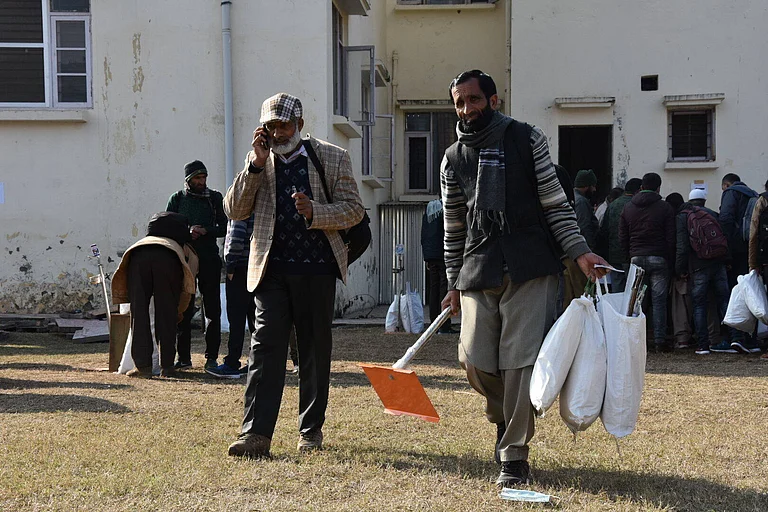The high-level committee on simultaneous polls headed by former president Ram Nath Kovind on Wednesday sought an interaction with political parties on a "mutually agreed date". Parties have also been given an option to send their views in writing in the next three months.
According to an official statement, the high-level committee also "noted" the resignation of Adhir Ranjan Choudhury, leader of the single largest party in the Lok Sabha, from the membership of the committee. The day the panel was constituted, Chowdhury had declined to be a part of it.
"I have no hesitation whatsoever in declining to serve on the committee whose terms of reference have been prepared in a manner to guarantee its conclusions. It is, I am afraid, a total eyewash," he had said in his letter to Home Minister Amit Shah, a member of the panel.
Law Commission chairperson Justice Ritu Raj Awasthi, along with some of its members, met the high-level committee on Wednesday, in second of such meetings to discuss the roadmap for holding synchronised elections in the country. The panel had invited the Law Commission to seek its views on how simultaneous polls can be held in the country.
The high-level panel, which had in its first meeting recently decided to seek views of political parties, has now written to them to elicit their views on holding sustainable simultaneous polls in the country. In a communication to the parties, it has sought an interaction with them on a "mutually agreed date", sources said citing the letter. They said parties have also been given an option to send their views in writing in the next three months.
The statement said letters have been sent to six National parties, 33 State parties and seven registered unrecognised parties inviting their suggestions on One nation One Election.
A year's time needed for simultaneous polls: report
According to a report by the Indian Express, the election commission (EC) felt that a “definite lead time of up to a year would be required for ramping up the voting machine production lines” as the “shortage of semiconductors, in the wake of the COVID-19 pandemic and the Russia-Ukraine war, has further messed up the timelines for EVM procurement”.
The EC flagged these concerns in its feedback to the law panel earlier this year. Semiconductors and chips are an essential component for manufacturing Electronic Voting Machines (EVMs) & Voter Verifiable Paper Audit Trail (or VVPAT) machines.
The Law Commission is working on a formula to synchronise all assembly polls by extending or reducing the tenure so that these elections can be held along with the Lok Sabha polls 2029 onwards.
For synchronising various assembly polls to ensure both state and Lok Sabha elections are held together from 2029 onwards, the commission may suggest reducing or enhancing the tenure of legislative assemblies. A mechanism is being devised to ensure that once Lok Sabha and assembly polls are synchronised, voters go to the polling booth only once to cast their ballot for both the elections.
The sources said since assembly and parliamentary polls are held in phases, the commission is working out modalities to see that voters do not go to polling stations more than once to cast their ballots for the two polls. The commission, they said, is of the view that assembly and parliamentary polls can be held together and it is only working out modalities for the smooth conduct of the gigantic democratic exercise.


























